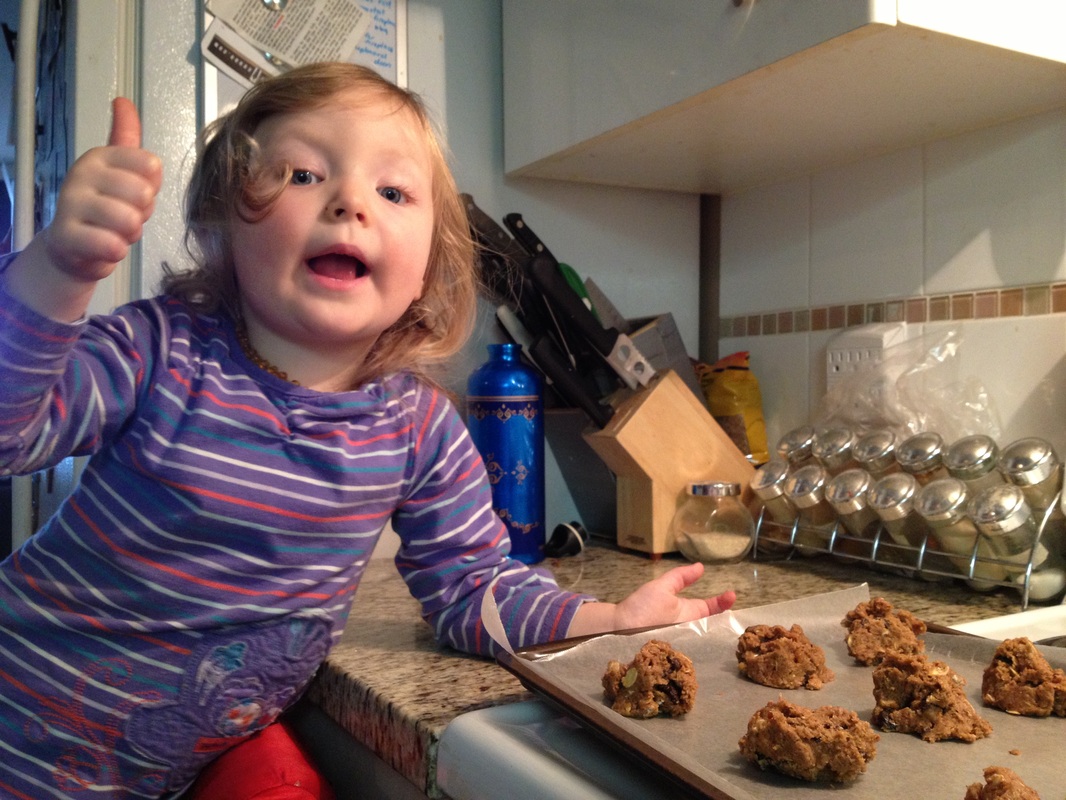
Not a baker or a cook? That’s not a problem. Learning how to bake and cook with your kids is not only something that will benefit the whole family but it can be a lot of fun too. Watching anything your kids do, from their perspective, is always enlightening, but I find that when it involves food it takes it one step further because the end result is something they can eat. Start with simple recipes and go from there.
If you are a baker or a cook, you might find yourself taking a lot of breaths as you get your kids involved in the process. Try to step back, relax and enjoy the entertainment. Yes, it’s true that you could get it done in half the time or less but kids helping in the kitchen is important on so many levels, including:
· Helping them learn about how to use food.
· Understanding what we do to food to help turn it into the meals that we eat.
· Learning how different ingredients work together – from baking soda and baking powder, to simply what happens when you mix liquids and solids together.
· Teaching them about different spices, by talking about the flavours and benefits.
These are important life skills and starting off young is only going to benefit them. It’s sad but true that many adults these days just don’t know how to cook even simple meals, like grilled cheese.
Empowering our kids to learn is so important. We, as a society, need to get back to a place that sees the normalcy of taking the time to cook the food that we eat. It is of benefit to everyone.
Involving your kids in the kitchens has many benefits for them, regardless of their age. These include:
· Math: measuring and counting ingredients.
· Science: how ingredients work together, learning about different stages of cooking ie/ liquid to solid and vice versa, boiling, the effect of different temperatures, etc.
· Safety: cutting with sharp objects, using heat to cook with, keeping food safe to eat.
· Social: getting together with family and friends to cook and eat. Learning how to share and cooperate when
working in the kitchen with other people.
· Emotional: developing independence in the kitchen, feeling proud and satisfied by eating foods that have been prepared and cooked by themselves. This helps develop a positive self-image.
· Language: reading, writing and communicating are all a part of being involved with food, recipes and cooking.
· Sensory: smelling, tasting, touching, hearing, and seeing. Cooking touches on all of these senses.
· Motor: being involved in the kitchen can help promote both fine and gross motor skills. It is also a great way to
promote hand-eye coordination.
Kids can do more than we give them credit for. Base what you involve them with in the kitchen on their age and/or ability.
For toddlers and preschoolers:
o Grating (with supervision)
o Stirring
o Mixing
o Pouring
o Providing the necessary tools ie/ bowls, spoons, measuring cups
o Collecting the necessary ingredients ie/ spices, flours, etc.
o Choosing a recipe (with help)
o Pressing the buttons on blenders, mixers (with supervision)
For school age children:
o Measuring out ingredients
o Reading the recipe
o Cooking and preparing simple meals ie/eggs, toast, salad
For teenagers:
o choose recipes and prepare them for the whole family.
o At this age they can even start creating their own recipes if they are interested.
Kids are often more willing to try foods and/ or meals that they have helped prepare. Baking and cooking together with your kids can be a great bonding experience.
Did you miss part 1 of this series? Involving your Kids Part 1: gardening- to read click here
Looking for more ideas of how to involve your kids? Contact Jill, Nurture The Future’s Registered Dietitian at [email protected]
References:
http://www.wrha.mb.ca/healthinfo/prohealth/nutrition/files/Nutrition_2.pdf

 RSS Feed
RSS Feed

.png.aspx?width=150&height=150)
